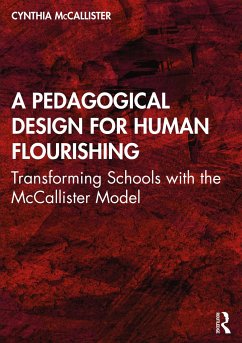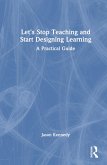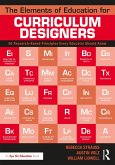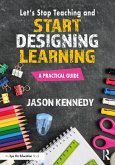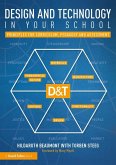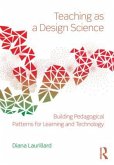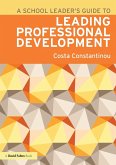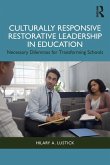Cynthia McCallister
A Pedagogical Design for Human Flourishing
Transforming Schools with the McCallister Model
Cynthia McCallister
A Pedagogical Design for Human Flourishing
Transforming Schools with the McCallister Model
- Broschiertes Buch
- Merkliste
- Auf die Merkliste
- Bewerten Bewerten
- Teilen
- Produkt teilen
- Produkterinnerung
- Produkterinnerung
This work presents a revolutionary paradigm for education that is practical, conceptually convincing and grounded in contemporary behavioral science theory.
Andere Kunden interessierten sich auch für
![Let's Stop Teaching and Start Designing Learning Let's Stop Teaching and Start Designing Learning]() Jason KennedyLet's Stop Teaching and Start Designing Learning153,99 €
Jason KennedyLet's Stop Teaching and Start Designing Learning153,99 €![The Elements of Education for Curriculum Designers The Elements of Education for Curriculum Designers]() Rebecca StraussThe Elements of Education for Curriculum Designers37,99 €
Rebecca StraussThe Elements of Education for Curriculum Designers37,99 €![Let's Stop Teaching and Start Designing Learning Let's Stop Teaching and Start Designing Learning]() Jason KennedyLet's Stop Teaching and Start Designing Learning27,99 €
Jason KennedyLet's Stop Teaching and Start Designing Learning27,99 €![Design and Technology in Your School Design and Technology in Your School]() HildaRuth BeaumontDesign and Technology in Your School39,99 €
HildaRuth BeaumontDesign and Technology in Your School39,99 €![Teaching as a Design Science Teaching as a Design Science]() Diana Laurillard (UK University of London)Teaching as a Design Science54,99 €
Diana Laurillard (UK University of London)Teaching as a Design Science54,99 €![A School Leader's Guide to Leading Professional Development A School Leader's Guide to Leading Professional Development]() Costa ConstantinouA School Leader's Guide to Leading Professional Development29,99 €
Costa ConstantinouA School Leader's Guide to Leading Professional Development29,99 €![Culturally Responsive Restorative Leadership in Education Culturally Responsive Restorative Leadership in Education]() Hilary A. LustickCulturally Responsive Restorative Leadership in Education62,99 €
Hilary A. LustickCulturally Responsive Restorative Leadership in Education62,99 €-
-
-
This work presents a revolutionary paradigm for education that is practical, conceptually convincing and grounded in contemporary behavioral science theory.
Produktdetails
- Produktdetails
- Verlag: Taylor & Francis Ltd
- Seitenzahl: 468
- Erscheinungstermin: 29. März 2022
- Englisch
- Abmessung: 254mm x 178mm x 25mm
- Gewicht: 862g
- ISBN-13: 9780367458591
- ISBN-10: 0367458594
- Artikelnr.: 61212419
- Herstellerkennzeichnung
- Libri GmbH
- Europaallee 1
- 36244 Bad Hersfeld
- gpsr@libri.de
- Verlag: Taylor & Francis Ltd
- Seitenzahl: 468
- Erscheinungstermin: 29. März 2022
- Englisch
- Abmessung: 254mm x 178mm x 25mm
- Gewicht: 862g
- ISBN-13: 9780367458591
- ISBN-10: 0367458594
- Artikelnr.: 61212419
- Herstellerkennzeichnung
- Libri GmbH
- Europaallee 1
- 36244 Bad Hersfeld
- gpsr@libri.de
Cynthia McCallister is an Associate Professor in the Steinhardt School of Culture, Education, and Human Development at New York University.
Section I: Background
1: Schooling the Possible Self: Introduction to a Learner-centered Educational Model
2: The schools we have
3: A Positive Learning Paradigm
Section II: A Pedagogy for the Self
4: The McCallister Method: Program Design
5 Sparks: A Learner-facing Personalized Curriculum
6: The Cultural Capital Curriculum
Section III: An Activity Curriculum: The Learning Cultures Formats
7: The Learning Environment and the Work Time Format
8: Lessons
9: The Learning Conference Format
10: The Learning Share Format
11: The Writing Conference Format
12: The Writing Share Format
13: The Pretend Play Format
14: The Cooperative Unison Reading Format
15: The Learning Teams Format
16: The Integrative Math Format
17: The Language Games Format
Section IV: The "We" Curriculum: Social Norms
18: Keepers of the Culture: The Social Norms Curriculum
19: The Academic and Behavior Intervention Formats
Section V: The Ecosystem Curriculum
20: Whole-school Transformation: The Ecosystem Design
21: The Assessment Program
22: The Civil Rights Program
23: The Community Education Program
24: The Curriculum Program
25: The School Culture Program
26: The Training Program
Section VI: Existence Proof
27: There are learning cultures
28: Transforming a large NYC high school
29: The Urban Assembly's McCallister-Learning Cultures Initiative
30. The "Rise of the Phoenix"
31: Conclusion: Shapes
1: Schooling the Possible Self: Introduction to a Learner-centered Educational Model
2: The schools we have
3: A Positive Learning Paradigm
Section II: A Pedagogy for the Self
4: The McCallister Method: Program Design
5 Sparks: A Learner-facing Personalized Curriculum
6: The Cultural Capital Curriculum
Section III: An Activity Curriculum: The Learning Cultures Formats
7: The Learning Environment and the Work Time Format
8: Lessons
9: The Learning Conference Format
10: The Learning Share Format
11: The Writing Conference Format
12: The Writing Share Format
13: The Pretend Play Format
14: The Cooperative Unison Reading Format
15: The Learning Teams Format
16: The Integrative Math Format
17: The Language Games Format
Section IV: The "We" Curriculum: Social Norms
18: Keepers of the Culture: The Social Norms Curriculum
19: The Academic and Behavior Intervention Formats
Section V: The Ecosystem Curriculum
20: Whole-school Transformation: The Ecosystem Design
21: The Assessment Program
22: The Civil Rights Program
23: The Community Education Program
24: The Curriculum Program
25: The School Culture Program
26: The Training Program
Section VI: Existence Proof
27: There are learning cultures
28: Transforming a large NYC high school
29: The Urban Assembly's McCallister-Learning Cultures Initiative
30. The "Rise of the Phoenix"
31: Conclusion: Shapes
Section I: Background
1: Schooling the Possible Self: Introduction to a Learner-centered Educational Model
2: The schools we have
3: A Positive Learning Paradigm
Section II: A Pedagogy for the Self
4: The McCallister Method: Program Design
5 Sparks: A Learner-facing Personalized Curriculum
6: The Cultural Capital Curriculum
Section III: An Activity Curriculum: The Learning Cultures Formats
7: The Learning Environment and the Work Time Format
8: Lessons
9: The Learning Conference Format
10: The Learning Share Format
11: The Writing Conference Format
12: The Writing Share Format
13: The Pretend Play Format
14: The Cooperative Unison Reading Format
15: The Learning Teams Format
16: The Integrative Math Format
17: The Language Games Format
Section IV: The "We" Curriculum: Social Norms
18: Keepers of the Culture: The Social Norms Curriculum
19: The Academic and Behavior Intervention Formats
Section V: The Ecosystem Curriculum
20: Whole-school Transformation: The Ecosystem Design
21: The Assessment Program
22: The Civil Rights Program
23: The Community Education Program
24: The Curriculum Program
25: The School Culture Program
26: The Training Program
Section VI: Existence Proof
27: There are learning cultures
28: Transforming a large NYC high school
29: The Urban Assembly's McCallister-Learning Cultures Initiative
30. The "Rise of the Phoenix"
31: Conclusion: Shapes
1: Schooling the Possible Self: Introduction to a Learner-centered Educational Model
2: The schools we have
3: A Positive Learning Paradigm
Section II: A Pedagogy for the Self
4: The McCallister Method: Program Design
5 Sparks: A Learner-facing Personalized Curriculum
6: The Cultural Capital Curriculum
Section III: An Activity Curriculum: The Learning Cultures Formats
7: The Learning Environment and the Work Time Format
8: Lessons
9: The Learning Conference Format
10: The Learning Share Format
11: The Writing Conference Format
12: The Writing Share Format
13: The Pretend Play Format
14: The Cooperative Unison Reading Format
15: The Learning Teams Format
16: The Integrative Math Format
17: The Language Games Format
Section IV: The "We" Curriculum: Social Norms
18: Keepers of the Culture: The Social Norms Curriculum
19: The Academic and Behavior Intervention Formats
Section V: The Ecosystem Curriculum
20: Whole-school Transformation: The Ecosystem Design
21: The Assessment Program
22: The Civil Rights Program
23: The Community Education Program
24: The Curriculum Program
25: The School Culture Program
26: The Training Program
Section VI: Existence Proof
27: There are learning cultures
28: Transforming a large NYC high school
29: The Urban Assembly's McCallister-Learning Cultures Initiative
30. The "Rise of the Phoenix"
31: Conclusion: Shapes

